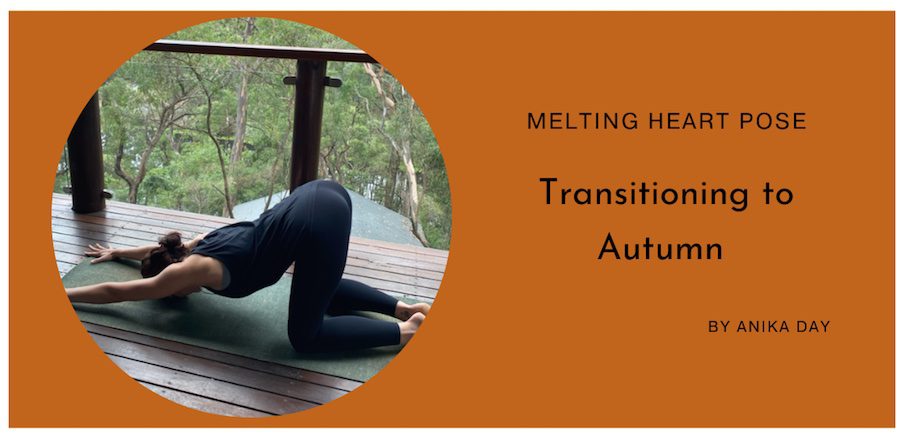Welcome to Autumn, Billabongers!
Autumn represents shorter days, cooler air and preparation for winter. As the leaves fall from the trees, Autumn invites us to let go on all levels whether that be spiritual, emotional or physical. The spent leaves on the ground symbolise a shedding or releasing of burdens or energies that may be tying you to the past, inhibiting your ability to be here in the present. Autumn is the perfect season for reflection as we transition from the warmer yang energies of summer to the cooler yin energies of winter.
Some helpful journal prompts for the change of season:
- What have I learnt so far this year?
- How have I grown?
- What lights me up and excites me?
- What is ready within me to release?
- What am I grateful for?
In Traditional Chinese Medicine, the lungs and large intestine are associated with Autumn. Deep breathing exercises and eating root vegetables and whole grains can help our body adjust to the change of season. Ayurveda also acknowledges the importance of living seasonally for one’s good health and well-being. Specific lifestyle and diet choices during each season and season change help to maintain our internal balance throughout the year.
Breathe deeply
One of the best ways to strengthen your lungs is to breathe deeply. It sounds so simple, but most of us don’t breathe deeply at all and this affects things like our energy levels, immune system and stress response.
Try this simple exercise:
Breathe in through your nose and think of breathing all the way to your belly, taking in as much air as possible. Once the lungs are completely full, hold your breath for a count of 5. Then exhale through your nose or mouth until your lungs are completely empty. Do this three times. Try to do this at least once per day.
Beneficial foods in Autumn
Longer cooking times and heartier ingredients are used to support the body throughout the cooler and drier months of Autumn and Winter. To help maintain your moisture reserves during these drier months, try to increase your intake of foods high in fat. To support your digestive system, enjoy softer and warmer foods such as soups and stews. It is beneficial to include some stimulating spices in your cooking such as curry powder, cinnamon, cumin and black pepper. The key Ayurvedic principle is that opposites balance, so consider this by eating more hearty grains and vegetables and minimising your intake of frozen foods, raw vegetables and dried fruits. You can naturally boost your immune system by increasing your intake of antimicrobial foods such as garlic, ginger, turmeric and broccoli.
Anika’s Immune Tonic Recipe
1.Pick your favourite mug and add juice of half a lemon, teaspoon of fresh grated ginger, sprinkle of cinnamon, sprinkle of cayenne pepper, teaspoon of apple cider vinegar and honey to taste.
- Add boiling water and stir
- Leave to steep until drinking temperature
Option to strain through a fine mesh strainer to remove the chunks.
Nourish your Lung Chi with Melting Heart Pose
As mentioned above, Autumn is the season to nourish our Lung Meridian (think of meridians as energy channels through the body). The Lung Chi runs from the collarbone, along the inside of the arm to our thumb and is responsible not only for our lungs but for a healthy immune system. We can nourish Lung Chi through a Yin Yoga pose called Melting Heart.
From all fours, keep the hips stacked on top of the knees and begin to walk the hands forward. As the arms lengthen out, begin to soften the chest towards the floor. Allow your forehead to rest on the ground or modify by bringing your forehead onto a block. If you experience any pain or pinching in the shoulders, try taking the arms a little wider. Hold for 2-4mins then find a rebound by laying on your back or belly with your arms by your side.
Anika

